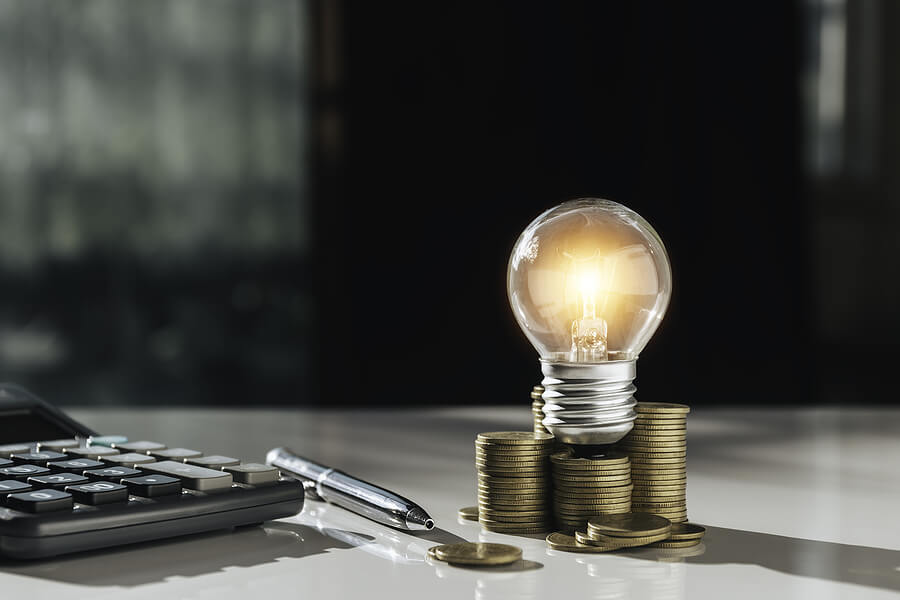Key Takeaways:
- Switching to energy-efficient appliances can lead to significant savings.
- Effective lighting strategies can decrease your energy consumption.
- Smart thermostats help optimize heating and cooling efficiency.
- Proper home insulation prevents energy loss and reduces costs.
- Reducing water heating expenses can make a noticeable difference.
- Fans can be used strategically for energy savings.
- Small behavioral changes contribute to lower electricity bills.
- Renewable energy sources offer long-term financial benefits.
Table of Contents:
- Switch to Energy-Efficient Appliances
- Make the Most of Your Lighting
- Install a Smart Thermostat
- Insulate and Seal Your Home
- Reduce Water Heating Costs
- Use Fans Smartly
- Change Small Daily Habits
- Consider Renewable Energy Sources
Introduction
Saving money on electricity doesn’t involve drastic lifestyle changes or major investments. Simple, easy-to-implement strategies can significantly lower your energy consumption, helping you save money while being kinder to the environment. This article outlines practical tips you can use right away to conserve energy and trim down your electricity expenses at home.
Switch to Energy-Efficient Appliances
One of the most effective ways to reduce your electricity bill at home is by switching to energy-efficient appliances. Modern energy-efficient appliances consume less electricity than older models, leading to long-term savings. So, if you’re wondering how to reduce electricity bill at home, consider investing in these appliances. Although they may have a higher initial cost, energy-efficient refrigerators, washing machines, and dishwashers can significantly lower your monthly electricity usage. In the long run, these appliances pay for themselves through reduced energy costs and increased lifespan.
Make the Most of Your Lighting
Lighting accounts for a substantial portion of your household electricity usage. Switching to LED bulbs is an easy and effective way to reduce energy consumption. LEDs use significantly less electricity and have a longer lifespan than traditional incandescent bulbs. Additionally, make the most of natural light during the day to limit the need for artificial lighting. Open your curtains and blinds to allow sunlight to illuminate your home. Installing dimmers and motion sensors can further optimize your lighting, ensuring lights are only used when necessary.
Install a Smart Thermostat
Installing a smart thermostat is a fantastic way to manage your home’s heating and cooling systems efficiently. Smart thermostats learn your daily routines and adjust temperatures to optimize energy consumption. With features like remote control, programmable schedules, and energy usage reports, these devices can help you save on electricity costs. Smart thermostats eliminate unnecessary energy expenditure and contribute to a more comfortable living environment by heating and cooling your home only when necessary.
Insulate and Seal Your Home
Proper insulation and sealing of your home are crucial for maintaining energy efficiency. Cracks and gaps around doors, windows, and other openings can cause heat loss in winter and excellent air escape in summer, making your HVAC system work harder. Sealing these gaps with weather stripping, caulk, and insulation can prevent air leaks and maintain a consistent indoor temperature. Additionally, insulating your attic and basement can further enhance your home’s energy efficiency, reducing the workload on your heating and cooling systems.
Reduce Water Heating Costs
Water heating is a significant contributor to your electricity bill. You can achieve considerable savings by implementing strategies to reduce water heating costs. One way is to insulate your water heater and hot water pipes to minimize heat loss. Lowering the temperature setting on your water heater can also save energy without sacrificing comfort. High-efficiency showerheads and faucets reduce the hot water used, leading to lower energy consumption. Simple habits like washing clothes in cold water and running dishwashers only with full loads can make a big difference in energy usage.
Use Fans Smartly
Fans are an excellent way to improve airflow and maintain comfort without over-relying on your air conditioning system. Ceiling fans create a cooling breeze, making you feel more relaxed even at higher thermostat settings. Ensure you turn off fans when you leave a room, as they are meant to cool people, not spaces. In the winter, reversing the direction of ceiling fans pushes warm air down from the ceiling, helping to maintain warmth and reduce heating costs. Using exhaust fans in the kitchen and bathroom can also remove excess heat and humidity, easing the load on your air conditioning system.
Change Small Daily Habits
Small behavioral changes in your daily routine can significantly lower electricity bills. They turn off lights when unnecessary and unplug electronics when not in use, which can prevent idle power consumption. Using power strips to switch off multiple devices efficiently reduces standby power usage. Running your washing machine, dishwasher, and dryer with full loads maximizes their efficiency, reducing energy waste. Additionally, consider using these appliances during off-peak hours to take advantage of lower electricity rates. These subtle changes, when practiced regularly, can have a substantial impact on your overall energy consumption.
Consider Renewable Energy Sources
Incorporating renewable energy sources like solar panels into your home can offer significant long-term savings on electricity bills. While the upfront installation costs can be high, the reduction in monthly energy expenses and potential government incentives make it an attractive option for many homeowners. Solar panels can significantly reduce your reliance on the grid and lower energy bills. Other renewable energy solutions like wind turbines and geothermal systems can also contribute to cost savings, depending on your location and environment. By producing renewable energy, you can protect yourself from rising electricity costs and contribute to a sustainable future.
Conclusion
Reducing your electricity bill at home doesn’t require monumental changes or significant financial investments. You can effectively lower your energy consumption by adopting energy-efficient appliances, optimizing your lighting setup, installing smart thermostats, improving home insulation, and making small daily habit changes. Additionally, exploring renewable energy sources can provide long-term financial benefits. Implementing these simple, practical strategies will make your home more energy-efficient and cost-effective and contribute positively to the environment. Start with these easy tips today and enjoy the lasting impact on your electricity expenditures.








Leave a Reply
View Comments